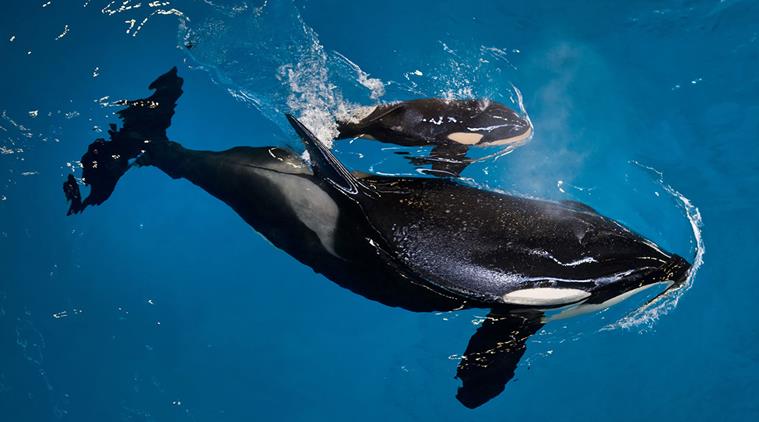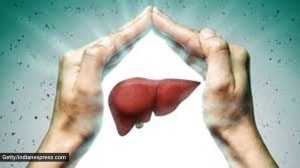- India
- International
Chemical pollution threatens to wipe out killer whales: Study
PCBs have been used around the world since the 1930s. More than one million tonnes of PCBs were produced and used in, among other things, electrical components and plastics.
 Killer whales (Orcinus orca) form the last link in a long food chain and are among the mammals with the highest level of PCBs in their tissue. (AP)
Killer whales (Orcinus orca) form the last link in a long food chain and are among the mammals with the highest level of PCBs in their tissue. (AP)
Chemical pollutants could lead to the disappearance of half of the world’s populations of killer whales from the most heavily contaminated areas within a period of just 30 to 50 years, according to a study.
More than 40 years after the first initiatives were taken to ban the use of polychlorinated biphenyls (PCBs), the chemical pollutants remain a deadly threat to animals at the top of the food chain, according to researchers at Aarhus University in Denmark.
Killer whales (Orcinus orca) form the last link in a long food chain and are among the mammals with the highest level of PCBs in their tissue.
Researchers have measured values as high as 1300 milligrammes per kilo in the fatty tissue (blubber) of killer whales.
For comparison, a large number of studies show that animals with PCB levels as low as 50 milligrammes per kilo of tissue may show signs of infertility and severe impacts on the immune system, researchers said.

The study, published in the journal Science, documented that the number of killer whales is rapidly declining in 10 out of the 19 killer whale populations investigated and that the species may disappear entirely from several areas within a few decades.
Killer whales are particularly threatened in heavily contaminated areas like the waters near Brazil, the Strait of Gibraltar and around the UK.
Around the British Isles, the researchers estimate that the remaining population counts less than 10 killer whales.
The killer whale is one of the most widespread mammals on Earth and is found in all of the world’s oceans from pole to pole.
However today, only the populations living in the least-polluted areas include a large number of individuals.
PCBs can have a dramatic effect on the reproduction and immune system of the killer whales, resaerchers said.
The diet of killer whales includes seals and large fish such as tuna and sharks that accumulate PCBs and other pollutants stored at successive levels of the food chain, they said.
It is these populations of killer whales that have the highest PCB concentrations and it is these populations that are at the highest risk of population collapse, according to the researchers.
Killer whales that primarily feed on small-sized fish such as herring and mackerel have a significantly lower content of PCBs and are thus at lower risk of effects.
PCBs have been used around the world since the 1930s. More than one million tonnes of PCBs were produced and used in, among other things, electrical components and plastics.
Together with DDT and other organic pesticides, PCBs have spread around the global oceans, researchers said.
“We know that PCBs deform the reproductive organs of animals such as polar bears. It was therefore only natural to examine the impact of PCBs on the scarce populations of killer whales around the world,” said Professor Rune Dietz from Aarhus University.
The research group reviewed all the existing literature and compared all data with their own most recent results.
This provided information about PCB levels in more than 350 individual killer whales around the globe — the largest number of killer whales ever studied.
Applying models, the researchers then predicted the effects of PCBs on the number of offspring as well as on the immune system and mortality of the killer whale over a period of 100 years.
“The findings are surprising. We see that over half of the studied killer whales populations around the globe are severely affected by PCBs” said postdoc Jean-Pierre Desforges from Aarhus University, who led the investigations.
Apr 19: Latest News
- 01
- 02
- 03
- 04
- 05





























